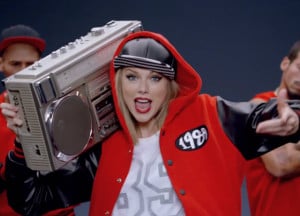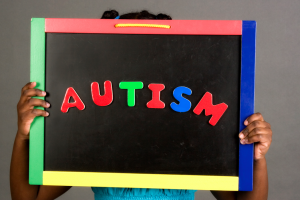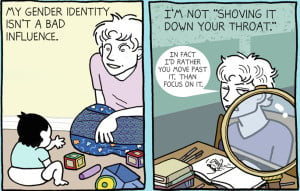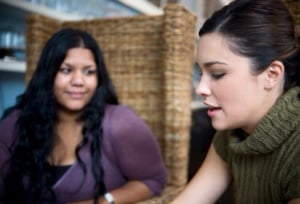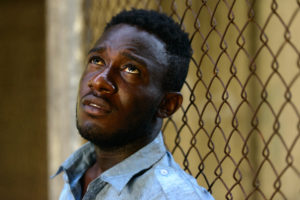
A person wearing a dirty shirt looks sadly upward, their back to a chain-link fence.
Originally published on Medium and republished here with the author’s permission.
Talking about class is a very complex thing for me. I’m middle class now, but historically poor.
Born in Eunice, Louisiana, I come from an eight-person family that lived in a three-bedroom house with a slanted foundation, a leaking ceiling in every room, and termites and insects living as family friends.
This house actually still had an outhouse, though we did have an inside bathroom as well.
The house eventually became unlivable. To this day, I’m unsure if the city told us we had to move out, or if Grandma Bertha just said “Enough is enough.”
So all eight of us moved into a three-bedroom apartment. We were on every government assistance program you could imagine, including food stamps. Back then, I called them “funny money” because they came in a variety of colors.
I also must mention that our household was full of love – and violence.
Growing up, there were times I wasn’t able to complete my homework because our electricity was shut off. Can you imagine explaining to six different teachers that you couldn’t complete their assignments because you were living in the dark the night before?
Well, I couldn’t, so I just told them I didn’t do it.
I’m sure I looked like an ill-prepared student who couldn’t care less – which has a whole host of consequences. The alternative was to tell them the truth, and be questioned vigorously on that truth.
I was shamed into those lies. How would they treat me if they knew the truth?
I was already known as the poor, Black, queer student. I wore the cheap tennis shoes from Ross Dress for Less, lived in one of the few sets of apartments in a sea of houses, was trapped by the comings and goings of the school bus, and worked at Dairy Queen 25-30 hours a week.
Why do I have to reveal this information to be considered a good student, or an intelligent human with potential? It’s unfair.
All of the adults worked, sometimes several jobs. We pooled our resources together just to survive. There was no parachute or safety net to pick us up if the slightest thing went wrong – the slightest thing.
Living this way is physically, mentally, and emotionally life-threatening – and the fear of falling never goes away. Never.
For instance, the air conditioning in my car doesn’t work currently, and it’s been hot in Kansas, enough that I’ve taken to keeping a sweat rag in the glove compartment.
I have the funds to fix the problem. However, I can’t get over the fear that if disaster struck me or a family member – family members that I am responsible to in every sense of life – I would have no reserves to fix any unplanned issues.
Part of me believes that my gasping for air in that hot-ass car is deserved and necessary, as I hold both struggle and survival as paramount. Sorting through this guilt is real, and it has a dynamic impact on every decision I make.
Again, no safety net. None.
Poor people are in an unceasing and unforgiving state of expending mental, emotional, and physical energy on sifting through impossible choices.
These limited options leave the poor in a place that has been systemically created for them – a place called the edge.
The edge. A place where true risk is both constant and consuming, and the consequences of slipping are quite real. This means the poor are living under chronic distress and are forced to embrace the idea of resiliency. Better yet, the tradition of resiliency that has been gifted upon them. Gifted by their ancestors that were not able to identify other viable options of survival.
Embracing resiliency is the only choice they have – keeps them alive, only to struggle the next day. The poor access resiliency through instinct and necessity.
I access resiliency through instinct and necessity, and I grow sick of having to do it. I’m tired of having to be resilient.
I get it. I understand the meaning behind it. I hate the experiences that makes one resilient – and yet, I’m dependent upon the word.
I’m dependent upon the feeling, as it provides motivation to continue in the fight for justice and a reason to believe that a day is near when fighting is no longer necessary. It is an unhealthy love affair rooted in survival.
Resiliency justifies all of my negative and certainly oppressive experiences; it carries a badge of honor and romanticizes my pain in many ways. Resiliency informs me that my life was meant for struggle and meager gains. It is a tricky word to make sense of and I deplore the privileged describing the oppressed with that word.
Sigh.
Paradoxically, it’s the only method that gets us through trial and tribulation, as we engage these impossible choices.
When I think of resiliency, the picture that is etched into my consciousness is Rosa Lee’s shea butter-lathered right hand serving a dual purpose: massaging her temple, attempting to exorcise the relentless demons on the prowl, slowly consuming her will to fight through it all; but also a more basic function of simply holding up her collapsing head.
The hand simultaneously serves as a flamboyant illustration of despair and a stubborn refusal to give in.
Eventually, we moved to Houston so my mother could find a better paying job.
I pictured her often awake late at night in our tiny, creatively inhabited two-bedroom apartment, crying as she contemplated how she was going to pay the utilities in May, pay the rent in June, and buy enough food to feed a family of four in July.
I pictured her weeping in the morning thinking incessantly about how she was going to purchase our school supplies and back to school clothing every August, how she was going to keep our faulty Yugo gassed up to get back and forth to work in October, and how she was going to ensure gifts under the Christmas tree (if we had a tree) by the time December rolled around.
I didn’t make the connection until much later on the timing of her tears. She wept in the dead of the night and cried in the stillness of the early morning. She didn’t want her children to bear witness to those toxic tears. She tried her best to spare us from the psychological woes of seeing your mother cry.
She failed. She cried, and continues to cry, as she smiles from cheek to cheek. The young that grow old before their time understand that smiling is about much more than the bent configuration of the lip – the authenticity of the smile is in the eyes.
I cry for my mother’s lack of joy. I cry the same toxic tears.
Instinctively, something would click – creativity would begin to flow. Suddenly, the goal became piecing the puzzle of dreadfulness together:
Even though the light bill is due now, I think I have at least a twenty-day grace period before the lights will be shut off. Therefore, I can buy groceries now if I stick to pancake mix, pasta and tomato sauce, eggs, ramen, and, of course, ground beef.
Trust, lots and lots of ground beef was purchased, captured in creative recipes, and always delightfully consumed. One down, 26 more puzzles to piece together!
How do the poor continue to breathe at this uncompromising pace on a spinning wheel? They never get anywhere. We never get anywhere.
My mother is a hustler.
I am still trying to unpack the many ways class has shown up in my life. How class interacts with my Blackness, queerness, and cis-maleness. I make new and liberating discoveries every day.
We must monitor the way class shows up. Like any other identity, class is deeply rooted in every lived experience.
For most of my life, I wasn’t merely defined as poor by income. What I “could” achieve – or what I “deserved”– was also fully limited, mentally and emotionally. I could win $20 million through the lottery, and still live a disastrous life informed by poverty.
Moreover, I live with the chronic feeling that I am an impostor in this middle class arena, and only one challenge away from being homeless.
Again, most of everyone I call family is poor. I am the one leaned on in the time of need. No parachute, safety net, or bungee cord – simply free falling. My mother is poor. Her parents were poor. Their parents were poor. And I am stuck in this in-between world.
Poverty influences my queerness, my religious beliefs and faith, my maleness, my fatness, my sexual orientation, my able-bodiedness, my education, and my consciousness – as it does for all of us at dynamic intersections and in every moment.
Activist friends, we must not forget the way class shows up in movements, education, and the platforms that we’ve claimed and hold on to dearly.
Unpacking class is work that you must engage in, too.
I’ve tracked sentiments of entitlement in conversations and organizing around intersectional liberation. We must talk about this.
Here are some basic examples:
1. ‘Don’t Shop at Wal-Mart Because It’s Awful’
However, who can afford to make such a choice?
Not everyone can afford to shop at Target or other department stores, and not everyone has access to local business that can provide the same goods.
We usually take “shopping at Wal-Mart” to mean grocery shopping or purchasing household items, forgetting that some folks buy their shoes and clothing from this establishment. We folk with class privilege, in contrast, have a whole list of our favorite stores for various items. Again, we have access to quality choices.
Not to mention, there are reasons that Wal-Marts show up frequently in poor neighborhoods, generally positioned as the only shopping choice.
As privileged folk, we must help to create more choices for the poor, instead of faulting them for using the resources around them, regardless of how problematic the resources are.
And if we are asking the poor to take risk by not going to certain places, we must speak gracefully and cautiously, holding space for the fact that the risk or loss involved for them is quite different than ours.
2. ‘Hit the Streets and Protest in Ferguson, Baltimore, and New York’
Not everyone has the mobility – which is influenced by class – to spend their days in protest.
So when activists call for people to go out and show up for prolonged protests or demonstrations, there is absolutely a classist (and ableist) element to it.
3. ‘Speak Up, Take Risk, and Use Your Voice’
These are often words spoken by activists. Typically, they’re used quite carelessly. Not everyone has the privilege to speak up and use their voice.
I couldn’t imagine my family members with no higher education speaking up in ways that would upset their fellow co-workers and supervisors: They would lose their jobs.
And a lost job means no income. No income means they can’t pay their bills or adequately care for their children.
Basic needs to live become unattainable. And they do not have savings accounts or anyone to lean on – everyone they know is living in their uniquely-tailored spinning wheel.
Classist!
4. ‘Your Writing Is Grammatically Incorrect’
The aforementioned statement is usually made without any critical thought. All of this access to information that we have, as activists, organizers, and social justice educators is rooted in some level of class privilege.
If you went to an elementary and middle school where you had access to an environment that was conducive to learning, this most often can be attributed to class privilege.
This good start in the formal educational system has everything to do with your trajectory in this treacherous system.
This has everything to do with the access to information you have (even if the educational process is informed by white supremacy), the access to a variety of minds you have, and the access to words and language you have.
Classist!
5. ‘Here’s What Poor People Need to Do Within Their Communities’
Of course, it’s not always said so overtly; we also say this subtly.
We lecture the poor often, and at times blame them for their lack of resources.
We can tend to enter these communities with a savior mentality and act out helpfulness in some real problematic ways – speaking for and over the communities we enter.
***
Class is often the identity folks do not hold themselves or others accountable to. I have illustrated here only some of the many ways we creatively skip conversations on class as we engage conversations around Brownness, Blackness, able-bodiedness, and queerness.
How often do we intentionally or unintentionally lean on our class privilege to exclude? We’ve got work to do.
Let’s talk.
***
This is the work of Cody Charles; claiming my work does not make me selfish or ego-driven, instead radical and in solidarity with the folk who came before me and have been betrayed by history books and storytellers. Historically, their words have been stolen and reworked without consent. This is the work of Cody Charles. Please discuss, share, and cite properly.
[do_widget id=’text-101′]
Cody Charles went deep undercover to study Hotepology at the University of Distinguished Hoteps, where he successfully slayed numerous colonies of Hoteps on nippy Saturdayevenings – accompanied by the occasional libation and a Popeyes two piece and a biscuit combo. He is the author of 10 Common Things Well-Intentioned Allies Do That Are Actually Counterproductive, Ten Counterproductive Behaviors of Social Justice Educators, I Will Burn My Name Onto It, and Simple But Not Easy: 25 Steps to Justice. Join him for more conversation on Twitter @_codykeith_ and Facebook. Please visit www.consultcody.com to learn more about him.
Search our 3000+ articles!
Read our articles about:
Our online racial justice training
Used by hundreds of universities, non-profits, and businesses.
Click to learn more





